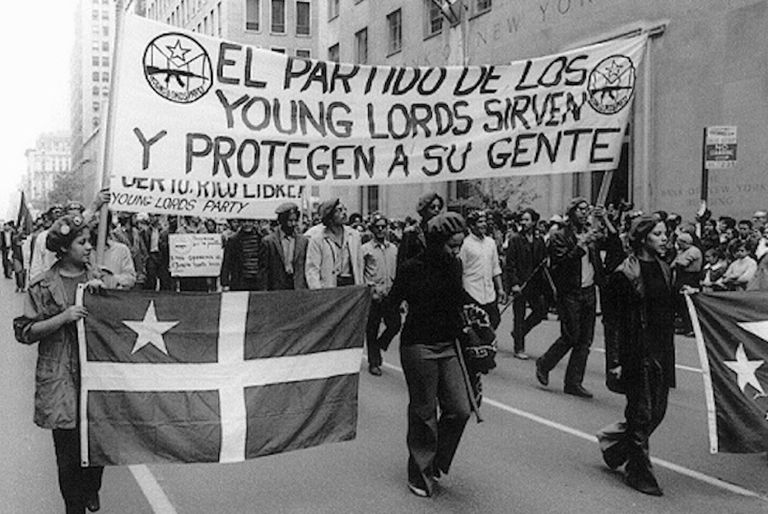
The Young Lords of New York turn 50
“Legacies are born out of traditions.”
Those were the words Carlito Rovira of the Young Lords on a recent episode of Democracy Now! Rovira was discussing the founding of the Young Lords and their connection to Puerto Rico’s current political crisis alongside fellow members Juan González, Denise Oliver-Velez and CUNY Baruch professor Johanna Fernández.
“The Puerto Rican people have been fighting since the birth of our nation,” said Rovira.
That fight has come out in Puerto Rico over the past two weeks and on Thursday, brought the downfall of Puerto Rico’s governor, Ricardo Rosselló.
His resignation was the climax of a series of events on the island that exposed the divisive elitism of the government’s inner circle and its corrupt tendencies.
In the 1960s, the Young Lords waged the same fight stateside.
“Puerto Ricans, effectively, were second-class citizens, were subject to discrimination on a daily basis,” said González, who is also a Democracy Now! correspondent.
Inspired by the reach and message of the Black Panther Party, the Young Lords were founded in Chicago under the leadership of Jose Cha Cha Jimenez. The group of young revolutionaries quickly became a force in underserved communities across the country.
In New York, González, Rovira, Oliver-Velez and others announced the formation of the Young Lords with a rally in Tompkins Square to commemorate the 10th anniversary of the Cuban Revolution.
In action, they occupied churches and hospitals to offer services to the community, in message, they educated people about Puerto Rican history and culture and called for Puerto Rican independence.
“We will be fighting until Puerto Ricans are free, in Puerto Rico and in the United States,” said Rovira.
July 26 marks the 50th anniversary of the founding of the New York chapter. It’s only fitting that fifty years after the Tompkins Square march, Puerto Ricans find themselves back out on the street decrying another government that doesn’t care for them.
As in the streets of New York in the 1960s and 70s, the streets of San Juan over the last two weeks showed a unified people.
CONTENIDO RELACIONADO
“I was amazed when I saw people on the island coming from a whole spectrum of politics,” said Oliver-Velez.
In the same vein, the Young Lords attempted to unify all marginalized people under one banner.
“The Young Lords really brought to the fore the idea that there were other people who were oppressed in the United States beyond African-Americans,” said Fernández.
González echoed her sentiment, citing how in its heyday, the Young Lords included African-Americans, Mexican-Americans, Dominicans and Cubans.
“We created a bridge. We broke down a lot of barriers,” said Oliver-Velez.
With that in mind, the New York chapter of the Young Lords was honored Friday night at the Schomburg Center in Harlem
The Young Lords, New York at 50, Activism: Past and Present commemorated the impact of the Young Lords in the city, from their 11-day transformation of the First Spanish United Methodist Church into the People’s Church to the Garbage Offensive, which shut down 3rd Avenue with piles of garbage to encourage city cleanup.
These actions commanded the recognition of the nation just as Puerto Ricans today demanded the attention of the world when they took to the streets of San Juan by the hundreds of thousands. They’re rooted in a culture — as embodied by the Young Lords — of fighting for what’s yours and owning it.
“Boricuas will continue fighting. That’s what we’re about,” said Rovira. “We are a revolutionary people.”
[node:field_slideshow]










DEJE UN COMENTARIO: